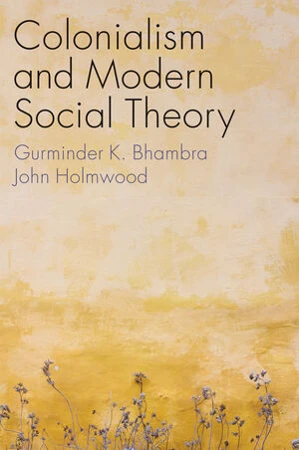Colonialism and Modern Social Theory

Blurb
Modern society emerged in the context of European colonialism and empire. So, too, did a distinctively modern social theory, laying the basis for most social theorising ever since. Yet colonialism and empire are absent from the conceptual understandings of modern society, which are organised instead around ideas of nation state and capitalist economy. Gurminder K. Bhambra and John Holmwood address this absence by examining the role of colonialism in the development of modern society and the legacies it has bequeathed. Beginning with a consideration of the role of colonialism and empire in the formation of social theory from Hobbes to Hegel, the authors go on to focus on the work of Tocqueville, Marx, Weber, Durkheim and Du Bois. As well as unpicking critical omissions and misrepresentations, the chapters discuss the places where colonialism is acknowledged and discussed – albeit inadequately – by these founding figures; and we come to see what this fresh rereading has to offer and why it matters. This inspiring and insightful book argues for a reconstruction of social theory that should lead to a better understanding of contemporary social thought, its limitations, and its wider possibilities.
Book summary
This is an immensely important book for any student of social theory interested in understanding the colonial roots of a lot of contemporary thinking. From a post-colonial perspective, Gurminder Bhambra and John Holmwood unpack how the emergence of modern society in the context of European colonialism and empire impacted the development of modern social theory. They find that colonialism and empire are to a large extent absent from the conceptual understandings of modern society in classics such as Tocqueville, Marx, Weber, Durkheim, and Du Bois, and that their ideas instead tend to be organized around ideas of the nation state and capitalist economy. Ultimately, the book argues for a reconstruction of social theory by taking the limitations addressed into account. Listen to the authors discuss the book on the Connected Sociologies Podcast

